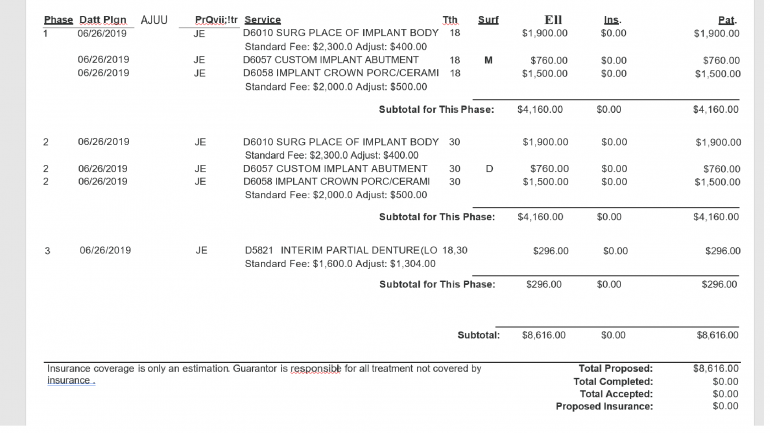
Dental Code D0604: Antigen testing for a public health related pathogen, including coronavirus
Dental Code D0604 refers to antigen testing for a public health-related pathogen, including the coronavirus. This dental procedure involves the detection of specific antigens associated with infectious pathogens to aid in the prevention and control of contagious diseases.
What does Dental Code D0604 mean?
Dental Code D0604 encompasses the process of antigen testing, which involves identifying particular substances called antigens present on the surface of pathogens. In the case of coronavirus antigen testing, the procedure aims to determine whether an individual is infected with the virus. This test facilitates early detection, prompt treatment, and the implementation of appropriate public health measures to restrict the spread of the pathogen.
Patient Preparation
Before initiating the antigen test, it is important for the dental professional to ensure that the patient is adequately prepared for the procedure. This preparation includes obtaining the patient's medical history, discussing any relevant symptoms, exposure history, or recent travel to high-risk areas. By gathering this information, the dental professional can better understand the patient's risk factors and make informed decisions regarding testing and subsequent actions.
Sample Collection
The second step involves collecting a suitable sample from the patient. In the case of coronavirus antigen testing, the most common method is the collection of a nasopharyngeal swab. This involves a healthcare provider inserting a long, flexible swab through the patient's nostril into the back of the throat to collect a sample from the nasopharynx.
The nasopharyngeal swab collection process may cause slight discomfort, as it stimulates the sensitive tissues in the nasal passage and throat. However, it is generally well-tolerated and relatively quick to perform. The collected sample is then carefully placed in a sterile container for further processing.
Antigen Test
Once the sample is collected, it undergoes a specialized testing process to detect the presence of specific viral antigens associated with the coronavirus. Testing kits designed for antigen detection are used, which contain reagents capable of identifying the target antigens.
The collected sample is mixed with the reagents contained within the testing kit. This mixture is then subjected to various techniques, such as lateral flow assays or enzyme-linked immunosorbent assays (ELISA), to analyze and identify the presence of viral antigens within the sample.
Lateral flow assays work by utilizing specific antibodies that bind to the viral antigens present in the sample. These antibodies are typically labeled with colored particles that produce visible lines or signals when they bind to the antigens. The presence of these lines indicates a positive result for the viral antigens.
ELISA tests employ specialized plates coated with viral antigen-specific antibodies. When the sample is added to the plate, any viral antigens present in the sample will bind to the antibodies. The binding is detected using color-changing enzymes that produce a visible reaction, which indicates the presence of viral antigens.
Interpretation of Results
After the antigen test is performed, the dental professional interprets the test results. A positive result indicates the presence of viral antigens, suggesting an active infection with the coronavirus. A negative result, on the other hand, suggests the absence of detectable viral antigens, indicating the absence of an active infection at the time of testing.
It is crucial to note that antigen tests, while highly specific, can sometimes yield false-positive or false-negative results. False-positive results can occur due to cross-reactivity with other similar viruses or non-specific binding. False-negative results can arise if the viral antigen levels are below the test's detection threshold. Therefore, confirmatory testing may be necessary in certain cases to validate the results.
Counseling and Follow-up
Following the interpretation of the test results, the dental professional provides counseling to the patient to help them understand the implications of the findings. If the test result is positive, indicating the presence of viral antigens, the patient may be advised to take appropriate measures such as self-isolation, seeking medical care, and notifying close contacts for further evaluation.
In the case of a negative test result, indicating the absence of detectable viral antigens, the dental professional may educate the patient on preventive measures and reinforce the importance of practicing good hygiene, wearing masks, and maintaining social distancing. It is essential to emphasize that a negative test result does not guarantee immunity or rule out the possibility of future infection, as it reflects the status at the time of testing.
Summary of Dental Code D0604
Dental Code D0604 involves antigen testing for public health-related pathogens, including the coronavirus. This dental procedure includes patient preparation, sample collection using a nasopharyngeal swab, antigen testing using specialized kits and techniques, interpretation of test results, and counseling and follow-up based on the results obtained.
By facilitating earlydetection and appropriate management, Dental Code D0604 plays a vital role in identifying and controlling infectious diseases, particularly the coronavirus. This procedure contributes to overall public health efforts by aiding in the prevention and restriction of contagious pathogens.
It is crucial to consult with dental professionals and healthcare providers to understand the specific protocols and guidelines related to antigen testing for public health-related pathogens. By adhering to these guidelines and following the recommended steps, dental professionals can effectively contribute to public health initiatives and help protect the well-being of their patients and communities.
Supercharge your financial savings on dental procedures with Dr. BestPrice
! Seamlessly compare dental care costs, make savvy decisions, and champion your oral well-being without straining your wallet.